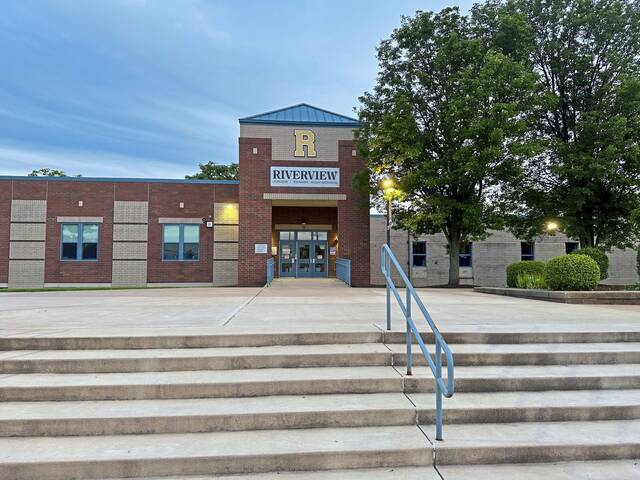It looks like Riverview School District won’t be accepting tuition students from outside the district anytime soon.
School board members tabled any vote on the move until their March meeting, at the earliest, after administration officials said the idea seemed to have more risks than benefits. And the board doesn’t seem inclined to pass it.
The district had been considering accepting students from other districts if the parents paid tuition to Riverview.
Superintendent Neil English said such a move could create multiple risks but no identifiable rewards.
The district’s current policy, passed in 2012 and mirroring most other districts, allows nonresident students to attend the district only in special circumstances, such as court placement, change in guardianship or homelessness.
The new policy being considered would not have requirements for special circumstances.
English worked with the Allegheny Intermediate Unit to send surveys to 42 school districts to get their opinions on offering open tuition.
None of the 22 districts that responded offers tuition options for nondistrict students, English said.
“We have the same exact policies, written the same way,” English said of the other districts.
The state Department of Education recommends tuition rates based on a number of factors, including the average daily attendance rate for the host district.
Riverview’s projected tuition, English said, would be more than $15,000 per year for elementary students and around $18,000 for high school students. Those are slightly higher than state averages.
While the state has recommended language for policies to use if the board decided to pursue tuition students, English said there are legal concerns, community concerns and school athletics concerns associated with such a move.
The district would have to spend more on legal support to ensure all students are provided special education services and fall in line with the Individuals with Disabilities Education Act.
Legal fees also likely would increase to ensure the district is providing equitable enrollment, financial transparency, accountability and equitable opportunities for students who live in the district and the students who are paying to be in the district.
English said he’s concerned with how vulnerable a new policy would make the district to potential lawsuits.
He said that if enough new students would come to the district, the board might have to hire more staff to accommodate growing classrooms, which would increase district spending.
Rapidly growing class sizes could lead to the district’s sports teams having to move up in PIAA classification, which is dependent on enrollment numbers. Other athletics department issues could include questions of eligibility, waiver requests and the need for larger coaching staffs, English said.
“Because of all of these issues … I think for sure risks in this case outweigh the benefits, which is why I think most people aren’t doing it,” English said.
Board President Wendy Wilton said there’s also an “ethical part” to consider.
“We are very upset when we lose kids to charter schools. We’re sad we’re losing kids, but then we want to take kids from other schools,” Wilton said. “I don’t feel great about that.
“The conversation came from a good place, but I think there’s too many reasons to not do it.”








